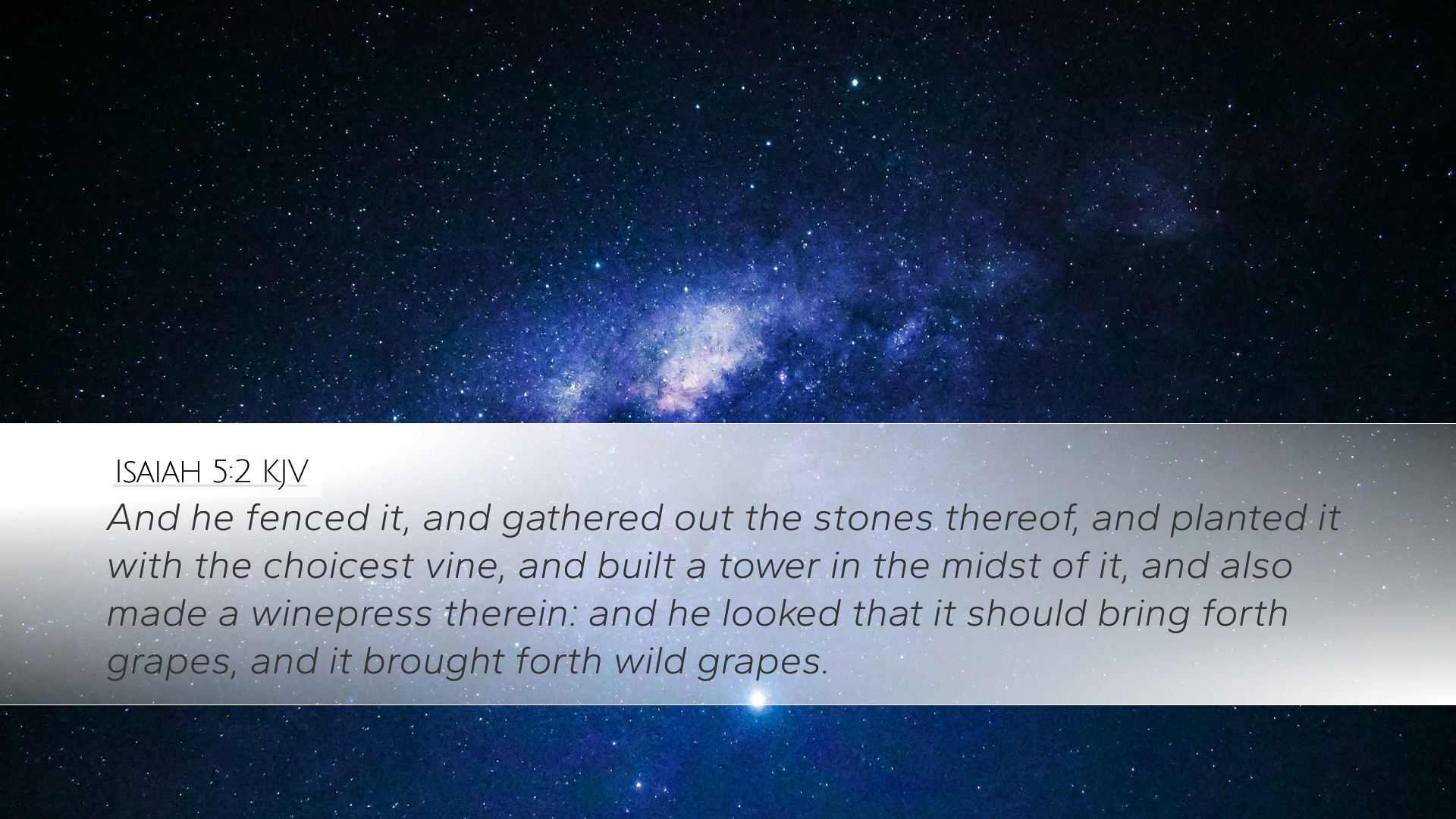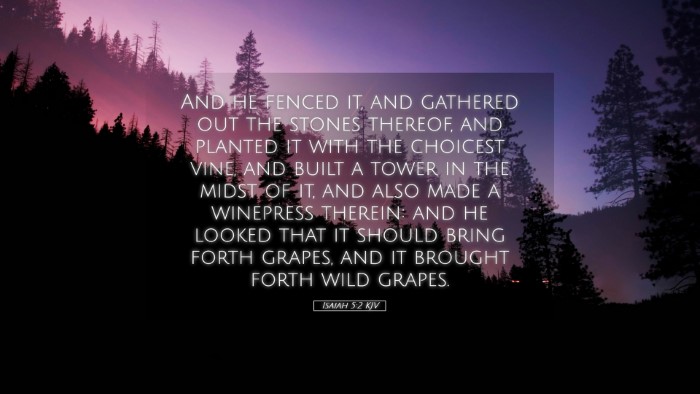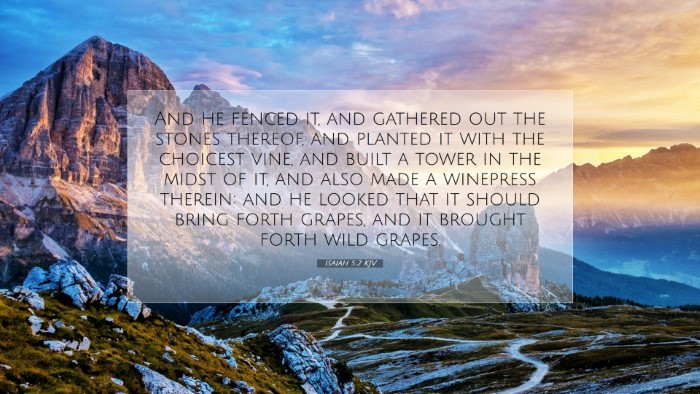Commentary on Isaiah 5:2
“And he fenced it, and gathered out the stones thereof, and planted it with the choicest vine, and built a tower in the midst of it, and also made a winepress therein: and he looked that it should bring forth grapes, and it brought forth wild grapes.”
This verse serves as a profound metaphor for God’s relationship with His people, Israel. The imagery crafted by Isaiah illustrates God's care, preparation, and the expectations He has for His chosen people. In this commentary, we will explore the significance of each element found in this verse and the broader implications it holds for understanding God's covenant with Israel and the nature of divine expectations.
1. The Preparation of the Vineyard
In this verse, the first act described is that of “fencing” the vineyard. This represents God’s protective measures. According to Matthew Henry, this fencing signifies God’s defense around His people, ensuring a separation from danger and allowing the Israelites to flourish in safety. God’s efforts to “gather out the stones” signify the removal of obstacles, which Albert Barnes interprets as God preparing hearts and minds to receive His word.
1.1 Divine Care and Provision
Every act of preparation emphasizes God’s love and provision. The diligent planting of “the choicest vine” highlights God’s intention to cultivate something beautiful and precious. Adam Clarke notes that “choicest vine” indicates a desire for quality over quantity—God’s purpose is holiness and righteousness among His people.
1.2 Building a Tower
The construction of a tower within the vineyard has dual symbolism. Firstly, it serves as a watchtower, representing vigilance in guarding against threats. Secondly, it may signify a place for worship and communion with God. Henry remarks that this tower portrays God’s desire for worship and His ultimate oversight, indicating the importance of spiritual vigilance among His people.
2. The Winepress and Expectation
The installation of a winepress symbolizes God’s expectation for fruitfulness. God anticipated not just any yield, but a "good" yield, representing the moral and spiritual fruits of Israel’s existence as His chosen nation. Barnes asserts that this expectation underlines the seriousness with which God views His relationship with His people.
2.1 The Concept of Fruitfulness
Fruitfulness is a recurring theme in Scripture, often linked with blessings or divine approval. God’s expectation was for His people to produce “grapes”, which symbolizes righteousness, justice, and obedience. The contrast is stark when they produced “wild grapes,” indicative of rebellion, sin, and unfaithfulness.Clarke emphasizes that wild grapes point to corruption and failure to measure up to God’s standards.
3. Theological Implications
This verse illustrates the disparity between God’s intentions and human responses. The vineyard, defined by divine investment and care, did not yield the expected return. This serves as a powerful reminder of God’s sovereignty in the relationship He has with His people, highlighting His justice and mercy. Henry notes that it is a warning against complacency and a call for self-examination among God’s followers today.
3.1 Symbol of Judgment
The failure to produce good fruit led to divine disappointment, which is pivotal to understanding the message of this passage. Barnes elaborates that God’s disappointment is not merely a reflection of human failure but serves as a profound example of divine judgment that is both righteous and inevitable in the face of unfaithfulness.
4. Application for Today
As we reflect upon this verse, it serves as an exhortation for pastors, students, and theologians. God continues to expect fruitfulness from His church. What kind of 'grapes' are being produced in our communities? This metaphor extends beyond Israel, as the Church today is called to embody the same principles of divine expectation and accountability.
Moreover, in discerning how we cultivate our spiritual lives, we are called to seek God’s guidance in removing the ‘stones’—the barriers to a fruitful relationship with Him. Just as the vineyard needed careful tending, so too does our faith require nurturing to yield righteousness.
5. Concluding Thoughts
The richness of Isaiah 5:2 offers comprehensive insights into the character of God as a sovereign gardener, the responsibilities of His people, and the serious nature of spiritual fruitfulness. This verse invites a contemplative examination of our spiritual lives and reminds us of God’s loving yet just approach to His covenant people.
In conclusion, Isaiah’s call serves as a timeless reminder that God invests in us and expects us to respond with obedience and faithfulness, thus producing a harvest pleasing to Him.


